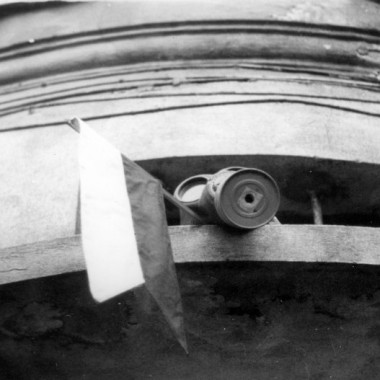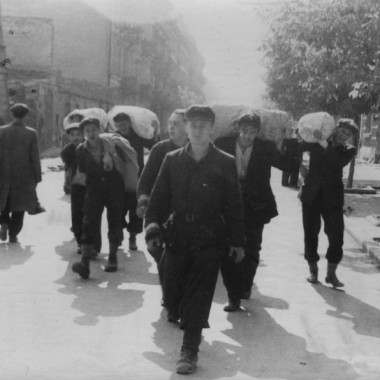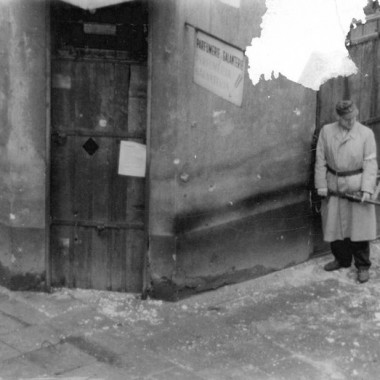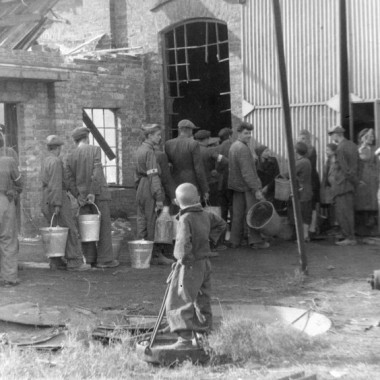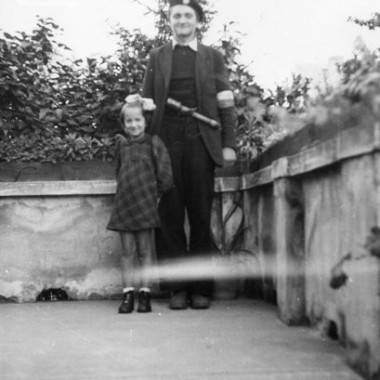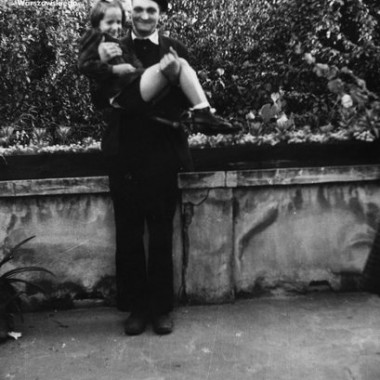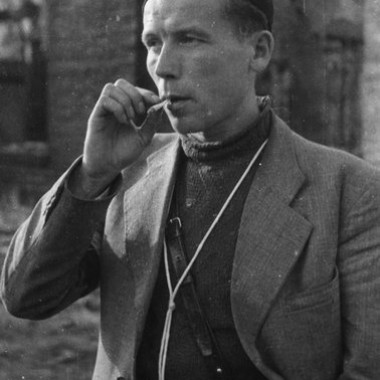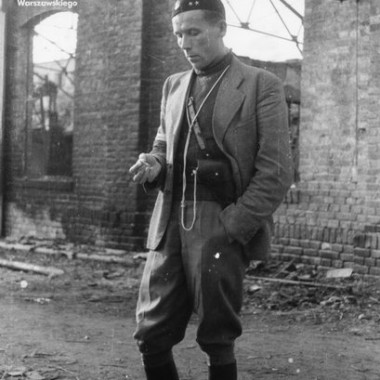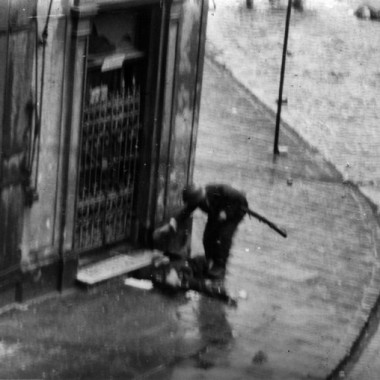2Lt. Wacław Żdżarski "Kozłowski" was born on 10 September 1913 in Warsaw. In 1932, he passed his final secondary education exam at the Adam Mickiewicz Middle School in Nowogródek. In 1932-1935, he studied at the Faculty of Law of the Stefan Batory University in Vilnius, and in 1935-1938 at the Higher School of Journalism in Warsaw. In 1936, he took up employment as a reporter at Warsaw's Publishing Agency "Rój", co-founded by writer Melchior Wańkowicz. In 1938, he completed military training at the Volhynian Reserve Artillery Officer Cadet School in Włodzimierz. In September 1939, he fought in the 44th American Legion Rifles Regiment in the area of Równe. Initially captured by the Soviets and transferred to Germans, he was held in Stalag VI B in Meppen-Versen, from which he was released as a war invalid on 30 October 1941. Żdżarski returned to Warsaw and joined the underground activities of the Bureau of Information and Propaganda of the Home Army Headquarters (BIP KG AK). Appointed the head of the photo section of the BIP's Propaganda Unit in 1942, he was in charge of organising the section, training the personnel and managing the photo laboratory which he and his wife, Sabina Żdżarska "Anna", set up in their flat at 6/8 Śliska Street in the City Centre. The entire archive of photos taken in that period perished during the Rising. In February 1944, Żdżarski's cover was blown and he went into hiding under the name of Michał Wrzosek. During the Warsaw Rising, he served as a press war correspondent (Prasowy Sprawozdawca Wojenny, PSW). On 30 August, he went to the district of Mokotów through the sewers to meet up with his wife, Sabina, also a photo reporter. In late September, he and his wife made it to Wilanów and then on to Milanówek. After the war, Wacław Żdżarski took up work for the editorial team of "Kurier Codzienny" and was active in the film journalist community. He was the organiser and the first president of the Film Correspondent Club of the Polish National Union of Journalists and a member of the International Federation of Film Critics FIPRESCI. In 1948–1950, he lectured on the theory and practice of journalist work and stenography at the Journalism Department of the Academy of Political Sciences. He worked for the magazines "Kinotechnik", "Przyjaciel Rzemieślnika", "Film", "Świat", "Słowo Powszechne", "Stolica" and others. He was the author of numerous publications on the technique and history of photography, including Od obiektywu do negatywu (From lens to negative) (1946), Historia Fotografii Warszawskiej (The History of Warsaw Photography) (1974), Almanach Fotoamatora (The Amateur Photographer’s Almanac; jointly with J. Sunderland and L. Sempoliński), Fotografujemy Zorką (Photographing with a Zorka camera) (1975), and Zaczęło się od Daguerre'a, (It Started with Daguerre) (1975). He received numerous decorations for his underground activities during the occupation, and for merits in the field of photography in post-war Poland. He died on 5 March 1983 in Warsaw.
Documenting the Warsaw Rising as a Press War Correspondent (PSW) under the pseudonym of "Kozłowski", Wacław Żdżarski operated in the City Centre in August, and moved to Mokotów through the sewers in September. Very few photographs taken at that time survived. His collection of nearly 300 negatives was destroyed during the German attack on Mokotów. Żdżarski managed to save only the few frames from the film which he had in his camera. A few photographs taken in the City Centre survived among photos developed in the insurgent lab in the cellars of Wedel's Shop at Szpitalna Street. They document the initial development of photographic materials subsequently used in BIP magazines "Warszawa Walczy" and "Polska Ilustrowana". The prints were marked on the reverse with the photographer's pseudonym, a date stamp and a brief description of the situation photographed.





